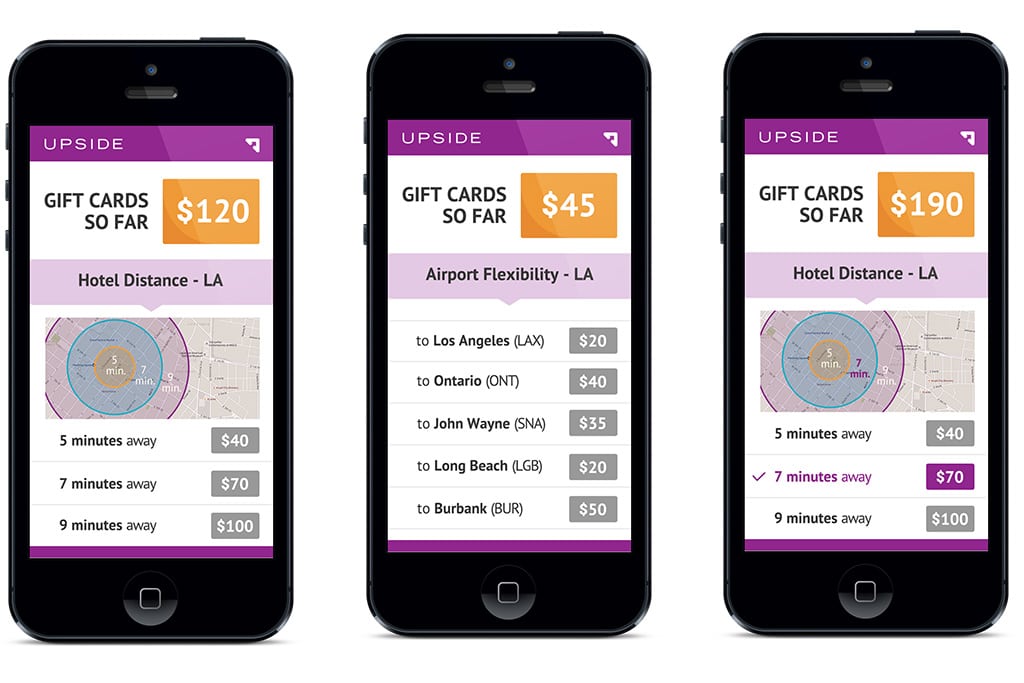Priceline Founder's New Startup Will Pay Business Travelers to Be Flexible

Skift Take
Upside has the potential to upend how businesses book unmanaged travel. But only time will tell how business travelers will react to an app offering a $100 Amazon gift card to delay their arrival home after a long trip.
One of the main challenges for frequent business travelers is balancing the financial needs of the company with their need for comfort while traveling for work.
They're aware they shouldn't ta spending frivolously on luxury hotel rooms and first-class flights. But it's nearly impossible to know, given most online booking tools, whether they're making a sound financial decision for their employer.
Upside, the new company from Priceline founder Jay Walker, will use gift cards from a variety of retailers to encourage business travelers to make less-expensive travel buying decisions.
Walker wants to shift how travel is booked in the $300 billion U.S. business travel market by providing incentives when business travelers voluntarily select a trip package that saves their company money.
"Everbody is walking around in the travel space knowing that the whole space is going to be reinvented in the next five to 10 years," said Walker. "There are so many new forces and new tools coming into
